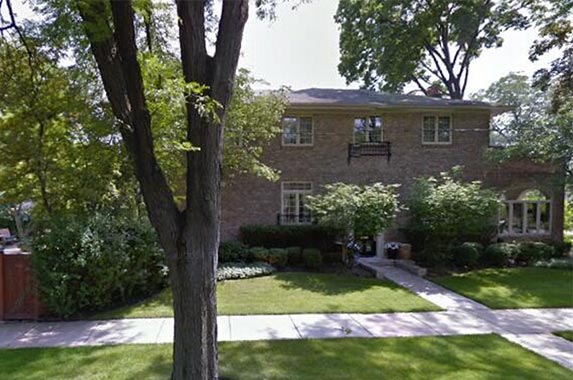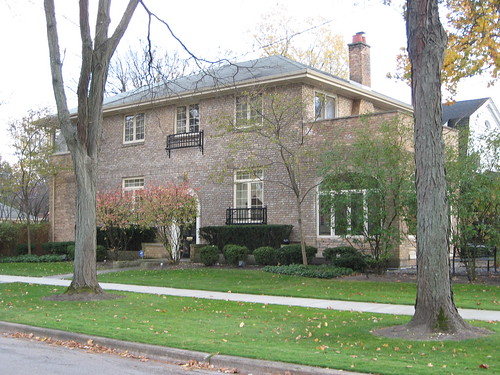Hillary's poor childhood home Politicians’ insu
Post# of 65629
Politicians’ insulting ‘poorness’ ploy

Hillary Clinton once again returned to her supposedly humble roots in a recent speech in Nevada. It was an attempt to draw a contrast between her upbringing and that of her opponent, Donald Trump, but what she really did was reinforce the presumptuous ignorance of politicians who think they can relate to poor people.
Call it their “poorness fetish.”
Clinton stressed that her grandfather was a factory worker and her father was a small-business owner who “worked really hard.” “You have to recognize that you’re affected by, shaped by, your experiences,” she said, drawing the connection between her supposedly modest upbringing and her policies.
She tends to refer to her family’s upbringing as “working class.” In reality, she was on the upper end of the middle-class curve. She grew up in a large home in a tony suburb of Chicago. Why not proclaim loudly that her parents fulfilled the American dream?
The answer, of course, is that politicians never say that they grew up well off. They find a hard-luck story from their childhood and press it as a way of connecting to the public with whom they have otherwise little in common.
Except it doesn’t help them connect, because actual poor people don’t talk and think this way.
Autobiographical stories matter, of course. There’s a reason John Kasich kept beating home that he’s the “son of a mailman” even though his financial-disclosure forms estimated his net worth in the $9-22 million range. Or that Clinton has taken to talking about her father’s drapery business stressing his was a small, very small, business.
Bernie Sanders, that champion of the everyman, bought a vacation home in the $600,000 range last August despite spending so much time talking about the haves and have-nots.
To listen to the candidates, everyone grew up mending their one dress and walking to school wearing shoes with holes (in the snow, uphill, both ways). Even Donald Trump, who usually loves bragging about his wealth, stresses that his father only gave him a million dollars to get started.
This is the language of the rich person. Actual poor people don’t revel in their poorness. “We’re just like you” say the politicians trying to win your vote. But they’re not.
Sure, once every four to six years they eat food on sticks and try not to wear clothes that are identifiably expensive. But the rest of the time they exist in a bubble of wealth so extreme that they don’t realize that no one who has actually been poor would glamorize it this way.
The Center for Community Change conducted an extensive study in 2014 on people living significantly below the Federal poverty line. It’s a very liberal organization pushing liberal policies, but they made an interesting discovery regarding language in their study. They found that participants didn’t self-identify as poor nor gravitate to language of “poverty” and so tended not to pay attention to policy discussions about themselves.
Politicians see being poor, which most of them clearly were not, as some sort of testament to their good character. But the only people who believe that being poor builds character are people who have either never been poor or had been but are now so rich that they can’t remember it.
It’s hard to find poor people who believe their situation is some sort of character-builder. It’s hard to find people who even self-identify as poor at all. Studies find that anywhere from 50-80 percent of people self-describe as middle class.
No one wants to think of themselves as poor — except our (rich) politicians.
Poor people don’t brag about being poor. My mother chides me when I write about my underprivileged childhood. “Don’t talk about that” is the embarrassed mantra of people who have actually struggled.
Writing in Slate in 2014, John Dickerson noted that trying to connect is second nature to politicians and playing up their poorness is one way to do it: “Candidates also try to make this connection because it’s one of the vital pathways to a voter’s heart. If you show voters that you have some understanding of their economic condition, they’ll listen to you. Or, better yet, they’ll support you without much further investigation. ”
But politicians are nothing like us. In the e-mails released from her private server, Hillary tells an aide to assist her with everything — from setting her DVR to fetching her tea. This isn’t a crime, but the everywoman persona she tries to project in public is clearly a façade.
It’s time to let go of the canard that politicians need to be “just like us” to govern. It should be enough that they sympathize with the average person. It’s not as important that they empathize.
It’s obnoxious that people so rich have to tell a fictional tale of their difficult upbringing to win elections.

 (0)
(0) (0)
(0)